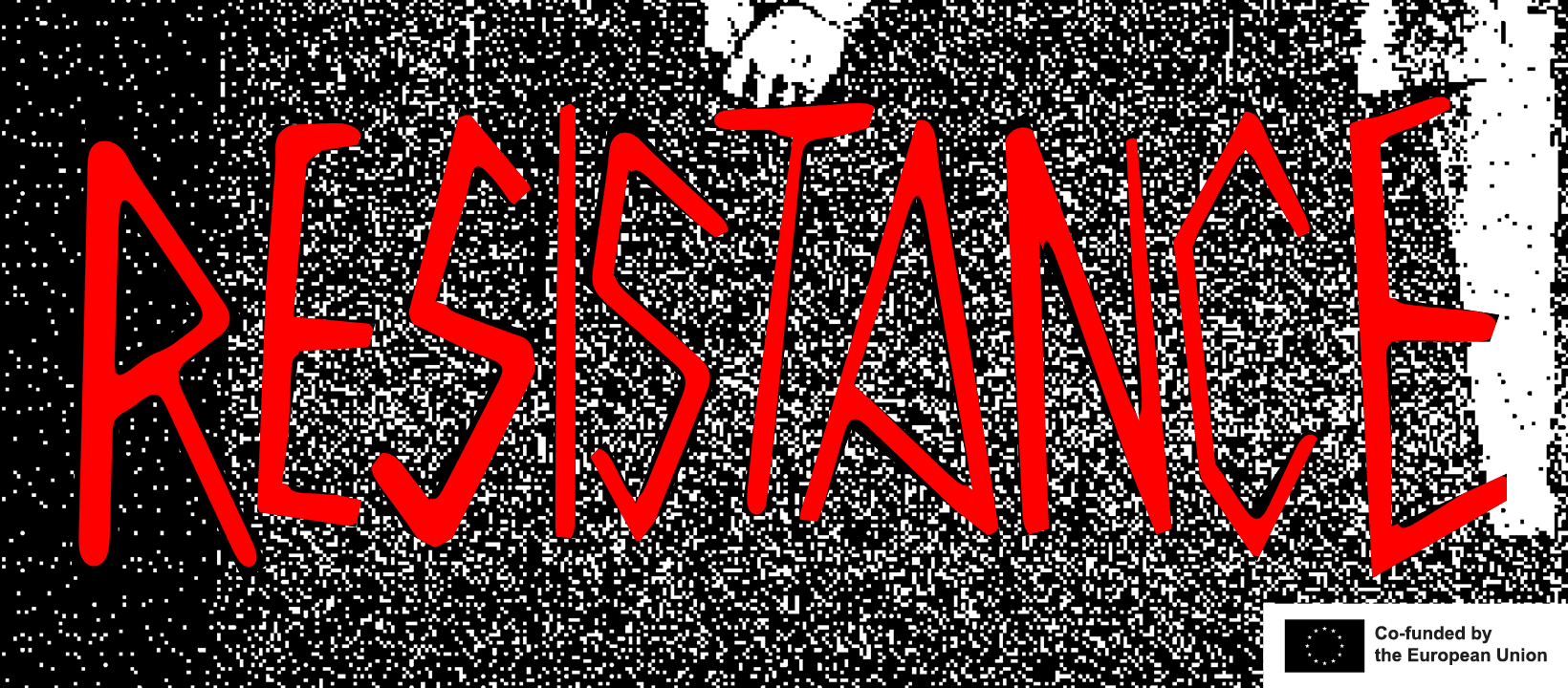
Festival Resistance is coming to Ljubljana!
From 5th to 7th of November, Glej Theatre will host young artists from Slovenia, the Netherlands, the Czech Republic, France, Italy and Portugal, who will bring stories from the past to life on stage as part of the European project Resistance: the Youth Festival of Modern European History. Through original performances, the young artists explore key events that shaped the 20th century in their countries and their consequences that continue to shape our communities today.
Each day of the festival will bring a new dose of resistance. Each country will present a unique production twice during the festival, and the programme will be rounded off by debates with the audience.
After the performances in each partner country, Slovenia will be their last stop. Resistance is not just a collection of theatre performances, but a space where the past comes alive and intertwines with the perspectives of a new generation. The festival offers young artists the opportunity to inspire reflection on the future of Europe through art and dialogue, and to show how history can be a force for change today.
Performances
When spring is over (NDM Ateliér, Czech Republic)
You are what you eat (Glej Theatre, Slovenia)
Breaking News (Theatro Circo, Portugal)
Revolution is a sexually transmitted infection (Paul Valery University Montpellier 3, France)
Resistance Redux (Het Theaterschip, Netherlands)
Lost (delleAli Teatro, Italy)
Digital tools
Glej, digital guidebook!
Glej, final online festival Resistance Rewind!
About the project
Understanding the complexities of current European society is impossible, especially for the younger generations, without knowing and understanding the complex historical developments and narratives. In most EU member states teaching history in the system of formal education is predominantly focused on national, if not patriotic history narratives. The consequence of this approach is that young people have a lack of knowledge about a wider, transnational and shared European history.
The project's overall aim is to foster a common culture of remembrance, mutual understanding and intercultural dialogue among young people from 6 EU countries through the commemoration of important historical turning points and political changes in Europe's 20th century.
Specific objectives:
- to improve history education by developing new international historical perspectives and new methodology for teaching history by using theater,
- to commemorate important historical turning points and political changes in Europe's 20th century,
- to make young people interested in researching a transnational European history in order to develop a European identity,
- to promote the values of an open democratic society and struggle for freedom, justice, equality and fundamental human rights.
A total of 8 international activities are planned. One workshop and 7 festivals, 6 in situ and 1 online. Partners from each country will produce a youth theater play, organize a festival with 6 performances in their venue, invite one new partner organization and send their performance to 5 festivals in partner countries. The duration of the play will be 45 minutes, and after each performance, there will be a debate with a young audience.
Topics of the partner countries:
Netherlands: The Process of Decolonization,
Czech Republic: The Prague Spring in 1968,
France: May ‘68,
Portugal: The Carnation Revolution 1974,
Slovenia: Disintegration of SFR Yugoslavia,
Italy: Resistance and Revenge.
International festivals
28.-30. April I Mezzago, Italy I festival producer: delleAli Teatro
2.-4. May I Braga, Portugal I festival producer: Gledališče Glej
13.-15. June I Montpellier, France I festival producer: Paul-Valéry Montpellier 3 University
10.-12. September I Ostrava, Czech Republic I festival producer: NDM Ateliér
18.-20. October I Deventer, Netherlands I festival producer: Het Stichting Theaterschip
5.-7. November I Ljubljana, Slovenia I festival producer: Gledališče Glej
4. December at 16h I online festival I festival producer: Gledališče Glej
Reports
Partners of the project
Gledališče Glej (Slovenia)
NDM Ateliér (Czech Republic)
delleAli Teatro (Italy)
Het Stichting Theaterschip (Netherlands)
Theatro Circo (Portugal)
Paul-Valéry Montpellier 3 University (France)
Support
Funded by the European Union. Views and opinions expressed are however those of the author(s) only and do not necessarily reflect those of the European Union or the European Education and Culture Executive Agency (EACEA). Neither the European Union nor EACEA can be held responsible for them.

Glej, children's first
Glej Theatre is committed to respecting and promoting children's rights and protecting them from all forms of abuse and harm.



